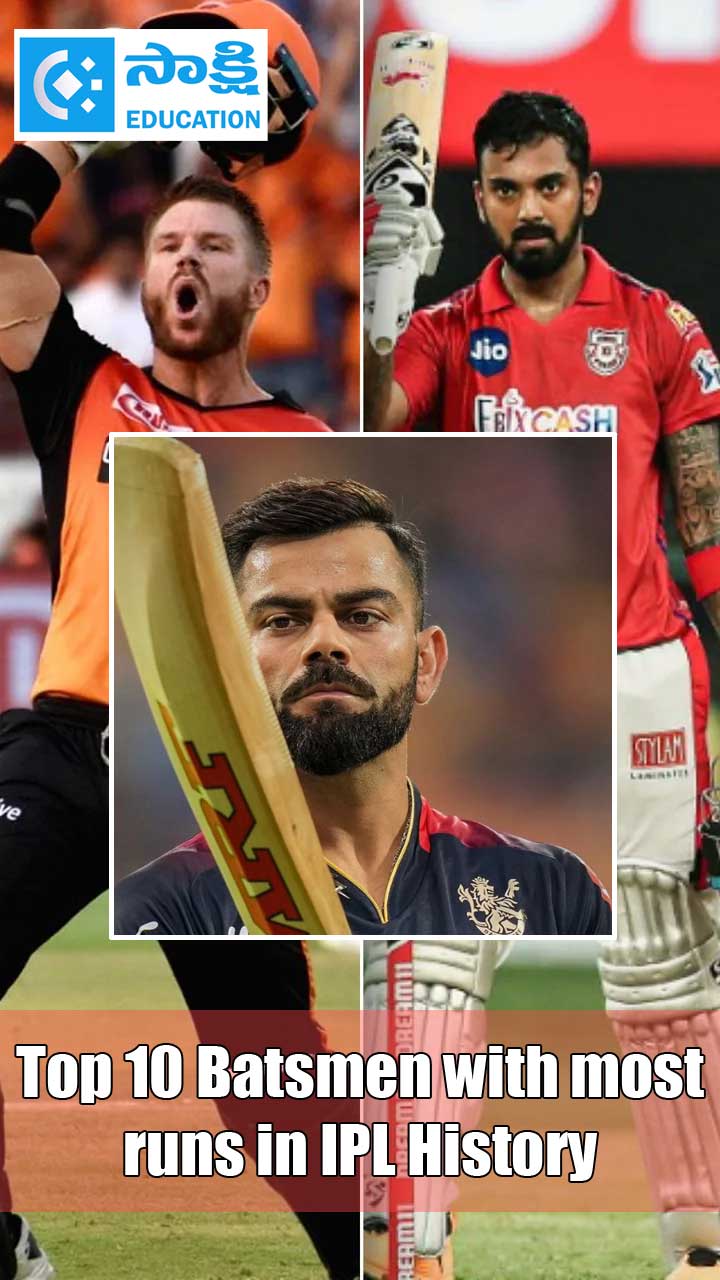Indo-French Relations: The whole new level
Sakshi Education
-Mohan Sai Dutt, M.A.(Economics).


Recent Developments in Indo-French Bilateral relations
French President EmmanuelMacron’s recent four-day visit to India have taken the Indo-French Bilateral relations to the whole new level. The events that took place during the president’s visit also have the potential to show spillover effects on the Global issues.
The Joint Vision Statement on the Indian Ocean Region is clearly aimed at countering China’s growing presence in the region. And the International Solar Alliance(ISA), recommitment to starting the Jaitapur nuclear power plant, and joint ventures on climate change cooperation are reactions to the U.S. abdicating its role by announcing its pullout from the Paris accord. In the defense sector, the “reciprocal logistics support” agreement, which Prime Minister Narendra Modi called a “golden step”. It can be seen as a signal to Russia and to the U.S.-led alliance that partnered in the “Quadrilateral”, that both New Delhi and Paris feel the need to diversify strategic postures beyond their current choices.
India and France were trying to provide an alternative Leadership model by bringing 61 less developed countries into ISA, challenging the geopolitical power structure configured around fossil-fuel energy resources. Notably, Mr. Modi and Mr. Macron declared they would ensure cheaper solar energy and increase avenues for financing, something that has created heat at the WTO. The daunting task ahead is made clear by Mr. Macron’s assertion that 1trillionisneededtoreachtheISAgoalsby2030:IndiaandFrancehavesofarcommitted1.4 billion and $1.3 billion, respectively.
French President Emmanuel Macron, in his interaction with students in Delhi said, "I want to double the number of Indian students coming to France and also want to increase the number of French students going to India.”
There are many challenges that exist between the good old friends.
For example, India’s solar power tariffs stand at about ?2.40 a unit and there is little scope to make the domestic industry profitable, as Mr. Modi wants, unless the cost of solar panels and other components are brought down drastically. At the same time, more thermal power, for which tariffs are higher but which is less fickle than solar or wind power, is being produced than the demand.
France’s nuclear power story is a success, but negotiations between EDF and NPCIL for the Jaitapur plant, billed as the world’s biggest, have made very slow progress. While the two countries have committed to start construction by end-2018, they have missed deadlines multiple times.
Bilateral cooperation in the Indian Ocean Region too is more symbolic than substantive today, and much will depend on how closely the Indian and French navies and intelligence work together in the future. The presumed joint message to Beijing may also be blurred by Mr. Macron’s parallel commitment to help “lead” the Belt and Road Initiative with China.
Bilateral Relations in the past
Relations between India and France have traditionally been close and friendly. With the establishment of strategic partnership in 1998, there has been a significant progress in all areas of bilateral cooperation through regular high-level exchanges at the Head of State/Head of Government levels and growing cooperation and exchanges including in strategic areas such as defence, counter-terrorism, nuclear energy and space. France was the first country with which India entered into an agreement on civil nuclear cooperation following the waiver given by the Nuclear Suppliers’ Group, enabling India to resume full civil nuclear cooperation with the international community. There is also a growing and wide-ranging cooperation in other areas such as trade and investment, culture, science & technology and education. France has consistently supported India’s increasing role in international fora, including India’s permanent membership of the UNSC.
The relations between India and France can be categorized into
1. Political relations
As early as the 1980s France wished to give greater scope to its relations with India. This closer bilateral relationship was concretized with the establishment of a strategic partnership in 1998, and a strategic dialogue a year later. This dialogue is based on annual high-level meetings and consultations conducted twice a year by the Diplomatic Advisor to the French President and the National Security Advisor to the Prime Minister of India.
The State Visit of President François Hollande in January 2016, less than a year after the visit of Prime Minister Narendra Modi to France in April 2015, reaffirmed the exceptional nature of the Indo-French strategic partnership and helped strengthen the dynamism of our economic, university, scientific and cultural exchanges.
The strategic partnership comprises the following focal areas:
Civil nuclear cooperation: the bilateral cooperation agreement for the development of peaceful uses of nuclear energy, which entered into effect on 14 January 2010, defined the framework of our cooperation in this field. Two agreements signed on 6 December 2010 complete its legal aspects. Several cooperation projects in the area of nuclear research and safety are in the process of being finalized. The project of building a nuclear power plant in Jaitapur now involves 6 EPRs (European pressurized reactors), with a total capacity of 9900 MW.
Defence cooperation: Regular exchange of visits at the level of Services Chiefs takes place. The three services also have regular defence exercises; viz. Exercise Shakti (Army; the last one took place in January 2016 in India), Exercise Varuna (Navy; April 2017 off Toulon), Exercise Garuda (Air Force; June 2014 at Jodhpur). Apart from service-level staff talks, the two sides have a High Committee on Defence Cooperation (HCDC) which meets annually at the level of Defence Secretary and the French Director General of the Directorate of International Relations and Strategy (DGRIS). The last HCDC meeting was held in New Delhi in March 2016. Apart from this, various staff courses, training programmes etc. also regularly take place. 15. Major on-going defence-related projects are the following:
Counter-terrorism cooperation: Since the 2008 Mumbai attacks, France and India have strengthened their cooperation in this area. The 2015 and 2016 attacks in France in acted as a fresh catalyst. France and India have set up an intensive network of operational exchanges and joint actions between their respective intelligence and security forces. They have a bilateral working group that brings together all the players concerned by counter-terrorism, which includes cooperation with regard to investigations and their respective intervention units, the GIGN and the NSG.
Space cooperation: France and India celebrated 50 years of their space cooperation in 2014. They entered into an agreement on the use of outer space for peaceful purposes, signed on 30 September 2008, extended and clarified the areas of cooperation, emphasizing in particular the study of climate change using space-based facilities for Earth observation, or the development of telecommunications satellites for commercial purposes. This agreement made it possible to develop the Megha-Tropiques satellite, launched on 12 October 2011, and the SARAL satellite, which was put in orbit on 25 February 2013.
The April 2015 MoU signed between the French (CNES) and Indian (ISRO) space agencies has paved the way for new projects. In the pipeline are a third jointly developed satellite for climate monitoring and a joint mission to be put in orbit in 2018 for boosting the Argos system, which collects and processes environmental data via satellite. French contributions to India’s upcoming inter-planetary missions to Mars and Venus are currently under consideration. January 2017 saw new cooperation in satellite launch technology. Apart from its cooperation with India’s space agency, ISRO, France is also collaborating with new players of the Indian NewSpace movement, through CNES partnering with TeamIndus’ mission to land a rover on the moon’s surface in January 2018.
Foreign policy: France’s own vision of reforms to global governance processes and its support to New Delhi on several strategic matters – France supports India’s candidacy for a seat as a permanent member of the United Nations Security Council and its access to civil nuclear cooperation – are well appreciated in India.
At the regional level, France fully supports India in its fight against terrorism and calls on all countries to fight effectively against terrorism originating from their territory or territories under their control. France also updates India regarding its position on sensitive regional issues (Iran, Afghanistan, Syria).
With regard to combating climate change, France and India actively strengthened their cooperation in preparation for COP21 in December 2015 and the implementation of the Paris Agreement. They jointly launched an International Solar Alliance, which will help federate the endeavours of developing countries to mobilise investments and encourage transfers of technology and innovation in the solar energy sector. They have also developed various projects on energy storage and sustainable urban development. The French Development Agency (AFD), established in India in 2008 – where it is mandated to preserve global public goods – will implement a 2-billion-euro credit line over the next few years to support Smart Cities and sustainable development projects.
2. Economic relations
Both India and France have important bilateral investments and trade and commercial cooperation. Almost 1000 French companies are present in India with a total turnover of US20 billion and employing 300,000 people in India. French companies have more than 25 R&D centres in India. France is the ninth largest foreign investor in India with cumulative investment of US 5.15 billion from April 2000 to May 2016 which represents 1.5% of the total FDI inflows in India. In France, about 120 Indian companies are present with an estimated investment stock of Euro one billion and employing 7000 people.
In 2016, the total trade in goods between India and France stood at Euro 8.58 billion, registering an increase of 0.49% from 2015. The trade surplus remains in India’s favour for the past ten years with Indian exports to France in 2016 standing at Euro 4.67 billion and French exports to India at Euro 3.90 billion. However, the overall volume of bilateral trade remains low with Indian exports to France being a meagre 1.06% of France’s total imports. Bilateral trade in services stood at Euro 3.41 billion in 2015 which remains in India’s favour with India’s share of Euro 1.72 billion of exports.
A Joint Economic Committee exists at the level of Ministers of Commerce and Foreign Trade from both sides. The latest round of the Joint Committee Meeting took place in Paris on 24 October 2017. The Indian delegation was led by Shri C.R. Chaudhary, MoS for Commerce & Industry and the French delegation was led by Mr Jean-Baptiste Lemoyne, Minister of State for Europe and Foreign Affairs. Shri Chaudhary also met French Foreign Minister Mr Jean-Yves Le Drian and Mr Benjamin Greveaux, Minister of State for Economy.
Seven bilateral joint working groups in various fields exist which are: (i) IT & Telecommunications; (ii) Roads; (iii) Sustainable Urban Development; (iv) Agriculture and Food Processing; (v) Mineral Exploration and Development; (vi) Energy; and (vii) Post.
An India-France CEOs’ Forum exists at the level of top CEOs from both sides meeting annually and presenting their reports to the Prime Minister of India and President of France. The Forum is led by Mr. DhruvSawhney, CEO of Triveni Engineering and Mr. Paul Hermelin, CEO of Capgemini. The last round of CEO’s Forum met in January 2017 in Paris.
Almost all the major French companies are present in India including Renault, Saint Gobain, Veolia, Michelin, Capgemini, Sanofi, EDF, Airbus, Lactalis, Sodexho, Total and others. Alstom has won a major project worth Euro 3.2 billion of manufacturing 800 locomotives in Madhepura, Bihar. India’s Reliance, Tata, Mahindra and other big companies have tied up joint cooperation with major French companies like Dassault, SAFRAN, Thales and others in the defence sector. French infrastructure companies are looking forward to major opportunities in Indian projects including in smart cities and renewable energy.
The Bilateral Investment and Protection Agreement between India and France expired in 2010, ten years after coming into force. GoI would like to replace it with a Bilateral Investment Treaty. A model text of the agreement was proposed by the Indian side in 2015. French response has been pending.
3. Cultural, scientific and technical cooperation
Developing bilateral cooperation on higher education, science, technology, research and innovation is given priority.
The acclaimed cultural festival, “Bonjour India”, first launched with resounding success in 2009-2010, presented a hundred different shows during its second edition in 2013. The third is being held in 2017-2018.
In the field of higher education, over 5, 500 Indian students and scientists chose France in 2017, a number that is growing swiftly. France’s target is to reach the 10,000 mark by 2020.
Apart from an attractive visa policy, France’s carries out a twofold endeavour: support to scholarship programmes, and Indian and French institutions for developing inter-university agreements. Several agreements are currently being negotiated (academic mobility, recognition of each other’s degrees), while others have been signed for encouraging more Indian scholars to study in France.
People-to-people contacts between France and India are also increasing with the development of tourism. The facilitation of visa procedures, with visa issuance within 48 hours and the implementation of biometrics, has encouraged this trend. Annually, around 6,00,000 Indian tourists visit France, which desires to host them in greater numbers.
Scientific and technical cooperation is another key area of our partnership, which was given a fresh impetus with the establishment of an Indo-French Commission for Scientific and Technological Cooperation. This cooperation is based on a unique structure bringing French and Indian researchers and scientists together, CEFIPRA/IFCPAR (Indo-French Centre for the Promotion of Advanced Research), which will celebrate its 30th anniversary in 2018. The development of joint research laboratories in promising areas (neuroscience, chemistry); the two French Institutes in Delhi and Puducherry; the research centres and a very strong presence of French research in the private sector (10,000 to 20,000 persons) completes our presence.
As two pluralistic democracies with a firm belief in a multipolar world order and in the future of Eurasia, India and France have numerous strategic convergences. But common ambitions to cooperate on the world stage, as projected by Mr. Macron and Mr. Modi, must be grounded in some hard realities as well.
French President EmmanuelMacron’s recent four-day visit to India have taken the Indo-French Bilateral relations to the whole new level. The events that took place during the president’s visit also have the potential to show spillover effects on the Global issues.
The Joint Vision Statement on the Indian Ocean Region is clearly aimed at countering China’s growing presence in the region. And the International Solar Alliance(ISA), recommitment to starting the Jaitapur nuclear power plant, and joint ventures on climate change cooperation are reactions to the U.S. abdicating its role by announcing its pullout from the Paris accord. In the defense sector, the “reciprocal logistics support” agreement, which Prime Minister Narendra Modi called a “golden step”. It can be seen as a signal to Russia and to the U.S.-led alliance that partnered in the “Quadrilateral”, that both New Delhi and Paris feel the need to diversify strategic postures beyond their current choices.
India and France were trying to provide an alternative Leadership model by bringing 61 less developed countries into ISA, challenging the geopolitical power structure configured around fossil-fuel energy resources. Notably, Mr. Modi and Mr. Macron declared they would ensure cheaper solar energy and increase avenues for financing, something that has created heat at the WTO. The daunting task ahead is made clear by Mr. Macron’s assertion that 1trillionisneededtoreachtheISAgoalsby2030:IndiaandFrancehavesofarcommitted1.4 billion and $1.3 billion, respectively.
French President Emmanuel Macron, in his interaction with students in Delhi said, "I want to double the number of Indian students coming to France and also want to increase the number of French students going to India.”
There are many challenges that exist between the good old friends.
For example, India’s solar power tariffs stand at about ?2.40 a unit and there is little scope to make the domestic industry profitable, as Mr. Modi wants, unless the cost of solar panels and other components are brought down drastically. At the same time, more thermal power, for which tariffs are higher but which is less fickle than solar or wind power, is being produced than the demand.
France’s nuclear power story is a success, but negotiations between EDF and NPCIL for the Jaitapur plant, billed as the world’s biggest, have made very slow progress. While the two countries have committed to start construction by end-2018, they have missed deadlines multiple times.
Bilateral cooperation in the Indian Ocean Region too is more symbolic than substantive today, and much will depend on how closely the Indian and French navies and intelligence work together in the future. The presumed joint message to Beijing may also be blurred by Mr. Macron’s parallel commitment to help “lead” the Belt and Road Initiative with China.
Bilateral Relations in the past
Relations between India and France have traditionally been close and friendly. With the establishment of strategic partnership in 1998, there has been a significant progress in all areas of bilateral cooperation through regular high-level exchanges at the Head of State/Head of Government levels and growing cooperation and exchanges including in strategic areas such as defence, counter-terrorism, nuclear energy and space. France was the first country with which India entered into an agreement on civil nuclear cooperation following the waiver given by the Nuclear Suppliers’ Group, enabling India to resume full civil nuclear cooperation with the international community. There is also a growing and wide-ranging cooperation in other areas such as trade and investment, culture, science & technology and education. France has consistently supported India’s increasing role in international fora, including India’s permanent membership of the UNSC.
The relations between India and France can be categorized into
- Political relations
- Economic relations
- Cultural, scientific and technical cooperation
1. Political relations
As early as the 1980s France wished to give greater scope to its relations with India. This closer bilateral relationship was concretized with the establishment of a strategic partnership in 1998, and a strategic dialogue a year later. This dialogue is based on annual high-level meetings and consultations conducted twice a year by the Diplomatic Advisor to the French President and the National Security Advisor to the Prime Minister of India.
The State Visit of President François Hollande in January 2016, less than a year after the visit of Prime Minister Narendra Modi to France in April 2015, reaffirmed the exceptional nature of the Indo-French strategic partnership and helped strengthen the dynamism of our economic, university, scientific and cultural exchanges.
The strategic partnership comprises the following focal areas:
Civil nuclear cooperation: the bilateral cooperation agreement for the development of peaceful uses of nuclear energy, which entered into effect on 14 January 2010, defined the framework of our cooperation in this field. Two agreements signed on 6 December 2010 complete its legal aspects. Several cooperation projects in the area of nuclear research and safety are in the process of being finalized. The project of building a nuclear power plant in Jaitapur now involves 6 EPRs (European pressurized reactors), with a total capacity of 9900 MW.
Defence cooperation: Regular exchange of visits at the level of Services Chiefs takes place. The three services also have regular defence exercises; viz. Exercise Shakti (Army; the last one took place in January 2016 in India), Exercise Varuna (Navy; April 2017 off Toulon), Exercise Garuda (Air Force; June 2014 at Jodhpur). Apart from service-level staff talks, the two sides have a High Committee on Defence Cooperation (HCDC) which meets annually at the level of Defence Secretary and the French Director General of the Directorate of International Relations and Strategy (DGRIS). The last HCDC meeting was held in New Delhi in March 2016. Apart from this, various staff courses, training programmes etc. also regularly take place. 15. Major on-going defence-related projects are the following:
- Rafale deal: The Inter-governmental agreement for purchase of 36 Rafale jets by India in flyaway condition was signed in New Delhi on 23 September 2016 by RM Manohar Parrikar and French Defence Minister Le Drian.
- P-75 Scorpene Project: The contract for six Scorpene submarines from M/s DCNS was signed in October 2006. All six vessels will be built under technology transfer at the Mazagaon Docks Ltd. The first two submarine Kalvari and Khanderi have been built.
Counter-terrorism cooperation: Since the 2008 Mumbai attacks, France and India have strengthened their cooperation in this area. The 2015 and 2016 attacks in France in acted as a fresh catalyst. France and India have set up an intensive network of operational exchanges and joint actions between their respective intelligence and security forces. They have a bilateral working group that brings together all the players concerned by counter-terrorism, which includes cooperation with regard to investigations and their respective intervention units, the GIGN and the NSG.
Space cooperation: France and India celebrated 50 years of their space cooperation in 2014. They entered into an agreement on the use of outer space for peaceful purposes, signed on 30 September 2008, extended and clarified the areas of cooperation, emphasizing in particular the study of climate change using space-based facilities for Earth observation, or the development of telecommunications satellites for commercial purposes. This agreement made it possible to develop the Megha-Tropiques satellite, launched on 12 October 2011, and the SARAL satellite, which was put in orbit on 25 February 2013.
The April 2015 MoU signed between the French (CNES) and Indian (ISRO) space agencies has paved the way for new projects. In the pipeline are a third jointly developed satellite for climate monitoring and a joint mission to be put in orbit in 2018 for boosting the Argos system, which collects and processes environmental data via satellite. French contributions to India’s upcoming inter-planetary missions to Mars and Venus are currently under consideration. January 2017 saw new cooperation in satellite launch technology. Apart from its cooperation with India’s space agency, ISRO, France is also collaborating with new players of the Indian NewSpace movement, through CNES partnering with TeamIndus’ mission to land a rover on the moon’s surface in January 2018.
Foreign policy: France’s own vision of reforms to global governance processes and its support to New Delhi on several strategic matters – France supports India’s candidacy for a seat as a permanent member of the United Nations Security Council and its access to civil nuclear cooperation – are well appreciated in India.
At the regional level, France fully supports India in its fight against terrorism and calls on all countries to fight effectively against terrorism originating from their territory or territories under their control. France also updates India regarding its position on sensitive regional issues (Iran, Afghanistan, Syria).
With regard to combating climate change, France and India actively strengthened their cooperation in preparation for COP21 in December 2015 and the implementation of the Paris Agreement. They jointly launched an International Solar Alliance, which will help federate the endeavours of developing countries to mobilise investments and encourage transfers of technology and innovation in the solar energy sector. They have also developed various projects on energy storage and sustainable urban development. The French Development Agency (AFD), established in India in 2008 – where it is mandated to preserve global public goods – will implement a 2-billion-euro credit line over the next few years to support Smart Cities and sustainable development projects.
2. Economic relations
Both India and France have important bilateral investments and trade and commercial cooperation. Almost 1000 French companies are present in India with a total turnover of US20 billion and employing 300,000 people in India. French companies have more than 25 R&D centres in India. France is the ninth largest foreign investor in India with cumulative investment of US 5.15 billion from April 2000 to May 2016 which represents 1.5% of the total FDI inflows in India. In France, about 120 Indian companies are present with an estimated investment stock of Euro one billion and employing 7000 people.
In 2016, the total trade in goods between India and France stood at Euro 8.58 billion, registering an increase of 0.49% from 2015. The trade surplus remains in India’s favour for the past ten years with Indian exports to France in 2016 standing at Euro 4.67 billion and French exports to India at Euro 3.90 billion. However, the overall volume of bilateral trade remains low with Indian exports to France being a meagre 1.06% of France’s total imports. Bilateral trade in services stood at Euro 3.41 billion in 2015 which remains in India’s favour with India’s share of Euro 1.72 billion of exports.
A Joint Economic Committee exists at the level of Ministers of Commerce and Foreign Trade from both sides. The latest round of the Joint Committee Meeting took place in Paris on 24 October 2017. The Indian delegation was led by Shri C.R. Chaudhary, MoS for Commerce & Industry and the French delegation was led by Mr Jean-Baptiste Lemoyne, Minister of State for Europe and Foreign Affairs. Shri Chaudhary also met French Foreign Minister Mr Jean-Yves Le Drian and Mr Benjamin Greveaux, Minister of State for Economy.
Seven bilateral joint working groups in various fields exist which are: (i) IT & Telecommunications; (ii) Roads; (iii) Sustainable Urban Development; (iv) Agriculture and Food Processing; (v) Mineral Exploration and Development; (vi) Energy; and (vii) Post.
An India-France CEOs’ Forum exists at the level of top CEOs from both sides meeting annually and presenting their reports to the Prime Minister of India and President of France. The Forum is led by Mr. DhruvSawhney, CEO of Triveni Engineering and Mr. Paul Hermelin, CEO of Capgemini. The last round of CEO’s Forum met in January 2017 in Paris.
Almost all the major French companies are present in India including Renault, Saint Gobain, Veolia, Michelin, Capgemini, Sanofi, EDF, Airbus, Lactalis, Sodexho, Total and others. Alstom has won a major project worth Euro 3.2 billion of manufacturing 800 locomotives in Madhepura, Bihar. India’s Reliance, Tata, Mahindra and other big companies have tied up joint cooperation with major French companies like Dassault, SAFRAN, Thales and others in the defence sector. French infrastructure companies are looking forward to major opportunities in Indian projects including in smart cities and renewable energy.
The Bilateral Investment and Protection Agreement between India and France expired in 2010, ten years after coming into force. GoI would like to replace it with a Bilateral Investment Treaty. A model text of the agreement was proposed by the Indian side in 2015. French response has been pending.
3. Cultural, scientific and technical cooperation
Developing bilateral cooperation on higher education, science, technology, research and innovation is given priority.
The acclaimed cultural festival, “Bonjour India”, first launched with resounding success in 2009-2010, presented a hundred different shows during its second edition in 2013. The third is being held in 2017-2018.
In the field of higher education, over 5, 500 Indian students and scientists chose France in 2017, a number that is growing swiftly. France’s target is to reach the 10,000 mark by 2020.
Apart from an attractive visa policy, France’s carries out a twofold endeavour: support to scholarship programmes, and Indian and French institutions for developing inter-university agreements. Several agreements are currently being negotiated (academic mobility, recognition of each other’s degrees), while others have been signed for encouraging more Indian scholars to study in France.
People-to-people contacts between France and India are also increasing with the development of tourism. The facilitation of visa procedures, with visa issuance within 48 hours and the implementation of biometrics, has encouraged this trend. Annually, around 6,00,000 Indian tourists visit France, which desires to host them in greater numbers.
Scientific and technical cooperation is another key area of our partnership, which was given a fresh impetus with the establishment of an Indo-French Commission for Scientific and Technological Cooperation. This cooperation is based on a unique structure bringing French and Indian researchers and scientists together, CEFIPRA/IFCPAR (Indo-French Centre for the Promotion of Advanced Research), which will celebrate its 30th anniversary in 2018. The development of joint research laboratories in promising areas (neuroscience, chemistry); the two French Institutes in Delhi and Puducherry; the research centres and a very strong presence of French research in the private sector (10,000 to 20,000 persons) completes our presence.
As two pluralistic democracies with a firm belief in a multipolar world order and in the future of Eurasia, India and France have numerous strategic convergences. But common ambitions to cooperate on the world stage, as projected by Mr. Macron and Mr. Modi, must be grounded in some hard realities as well.
Published date : 02 Apr 2018 01:01PM












